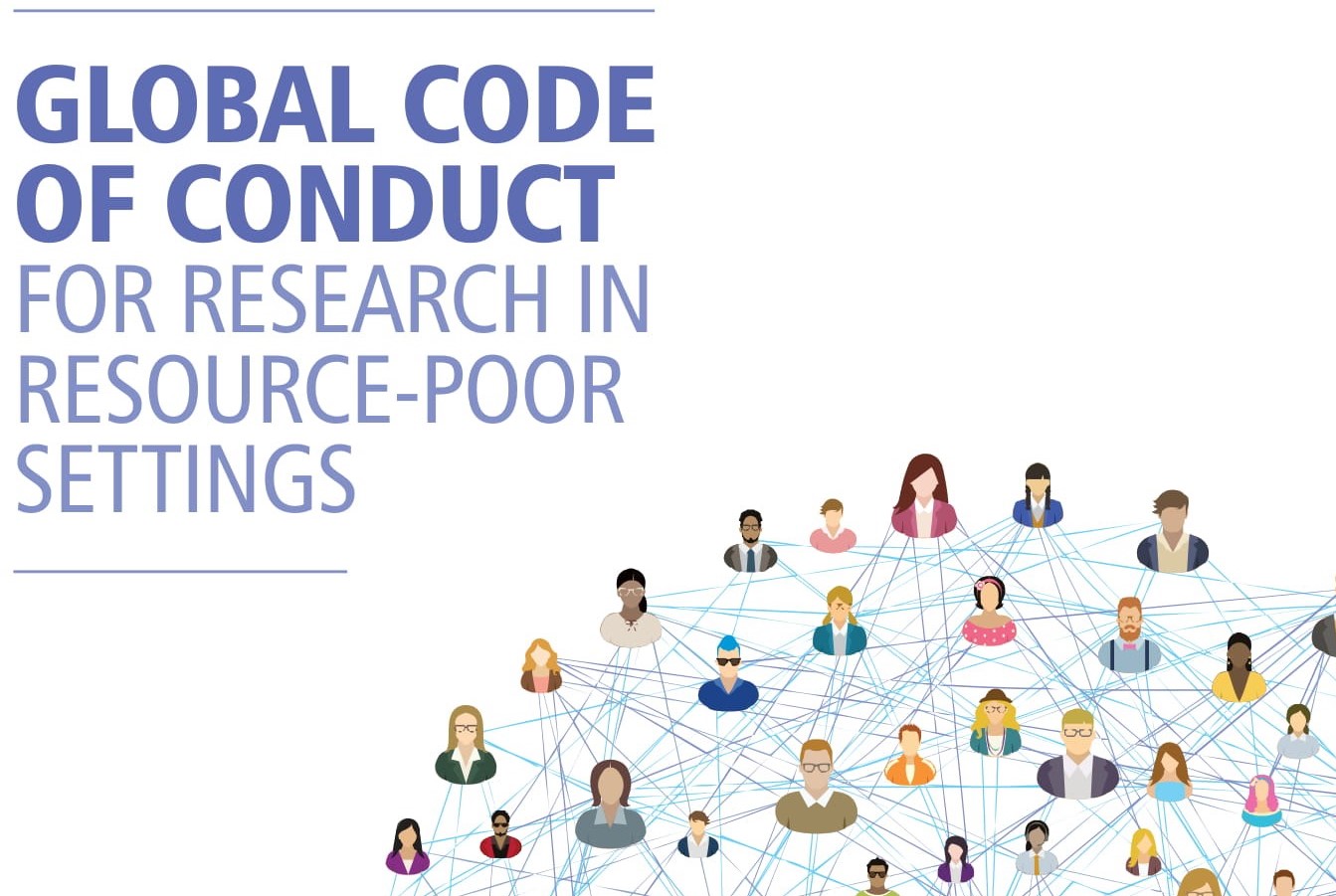
The Global Code of Conduct for Research in Resource-Poor Settings aims to stop the export of unethical research practices to low and middle income countries.
Research partnerships between high-income and lower-income settings can be highly advantageous for both parties. Or they can lead to 'ethics dumping', the practice of exporting unethical research practices to lower-income settings.
This global ethics code aims to fight this 'ethics dumping' in research by:
- Providing guidance across all research disciplines
- presenting clear, short statements in simple language to achieve the highest possible accessibility
- focusing on research collaborations that entail considerable imbalances of power, resources and knowledge
- using a new framework based on the values of fairness, respect, care and honesty
- offering a wide range of learning materials and affiliated information to support the Code, and
- complementing the European Code of Conduct for Research Integrity through a particular focus on research in resource-poor settings.
Those applying the Code oppose double standards in research and support long-term equitable research relationships between partners in lower-income and high-income settings based on fairness, respect, care and honesty.
Download the Code
The code was drafted by the TRUST project under the leadership of Prof. Doris Schroeder. Existing guidelines have played an important role in formulating the code. Please see the website for the guides they have taken substantial inspiration from and for further information on authorship and global engagement activities. These guides include the San people of Africa code of ethics for researchers.
This work is licensed under a Creative Commons Attribution 4.0 International License


Please Sign in (or Register) to view further.